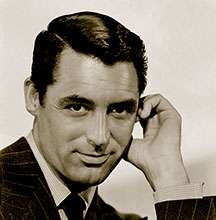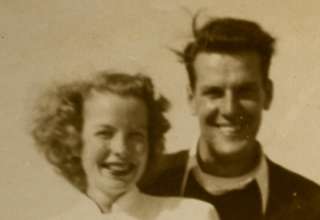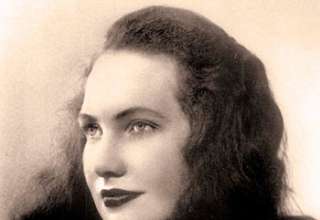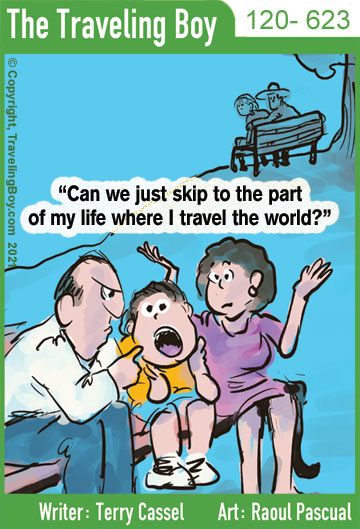Anthony Bourdain’s Most Interesting Places to Eat in America Right Now
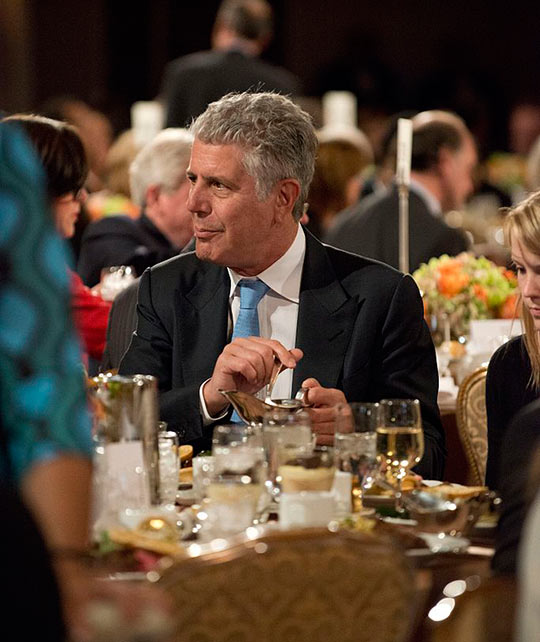
Despite getting his start in kitchens, as painstakingly detailed in his memoir Kitchen Confidential, Anthony Bourdain will be the first person to say he doesn’t have much of an interest in restaurants, at least not in the conventional sense.
“I don’t really care about restaurant culture that much,” Bourdain tells Food & Wine at the 10th Annual Cayman Cookout. “Street food and traditional food — and discovering that — is exciting to me.” The Parts Unknown host still eats out, but he dreads getting special attention because of his fame. “I like going to places where nobody fusses over me or sends me any extra courses,” he says. (For this reason, his go-to drinking spot in New York is a low-key Irish pub, the name of which he will never divulge.)
Bourdain talks about the places in America he’s most excited about eating in when he’s not schlepping around the globe.
The South
“I think the South right now is really interesting. I think what Sean Brock is doing, and has been doing, is really cutting-edge and a direction forward that I think a lot of people are following: rediscovering traditional ingredients, species, specific types of food — varieties of rice, for instance, that haven’t existed. He’s a seed collector. A botonist.”
Mid-Size Cities
“What I find when I travel in America nowadays is that everywhere you go, mid-size to small-size communities like Asheville or Madison or Pittsburgh, there’s a hipster chef with a full sleeve of tattoos, and he or she is doing really good food, often reflective of the foodways of the region. So you really can’t safely sneer at any place. Chances are there’s someone or a few people who are flying the flag.”
Korean BBQ and Yakitori in N.Y.C.
“I love Torishin, the yakitori place. I love Baekjeong, the Korean barbecue place; you can eat with your hands basically over chopsticks. What I don’t want is extra courses.”
On an international scale, Bourdain is most excited about eating in the regions where he has the most to learn. “China is endlessly exciting to me,” he says. “Malaysia and Singapore, of course, are always exciting because I’ll never know it all. It’s so old and deep. Senegal, Oman, Lebanon, Iran: these are relatively new cuisines to me, but also very old.”
Alcatraz Inmates Survived Infamous 1962 Escape, Letter Suggests
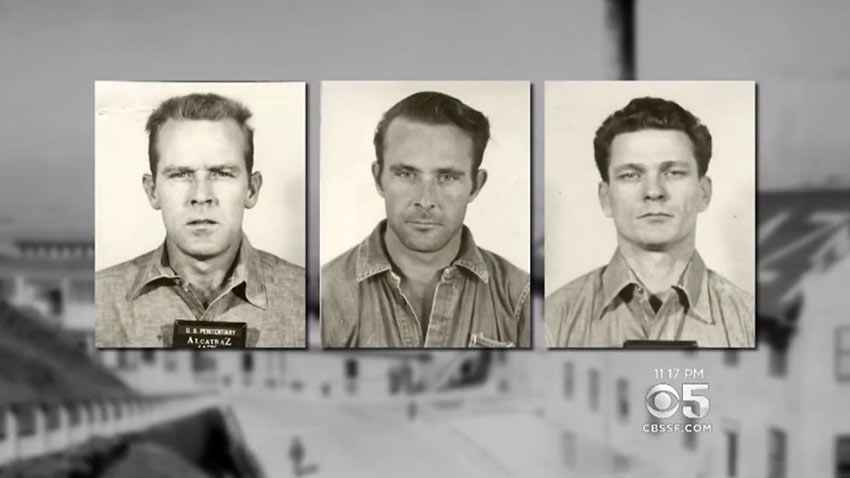
It is one of America’s greatest mysteries: What happened to three men after they pulled off a daring prison break at Alcatraz in 1962? Only the worst criminals were sent to Alcatraz. And for 29 years, it was the most secure federal prison in the country – surrounded by the cold, rough waters of the Pacific. But brothers John and Clarence Anglin and Frank Morris disappeared into the night and have never been found.
The men have become folklore – fueled by Hollywood and popular shows. And in the last 55 years, theories about their fate have multiplied as new evidence surfaces. A letter allegedly written by one of the escapees recently came to light. CBS San Francisco exclusively obtained it from a source. “My name is John Anglin. I escape from Alcatraz in June 1962 with my brother Clarence and Frank Morris. I’m 83 years old and in bad shape. I have cancer. Yes we all made it that night but barely!” The FBI says this is the most recent piece of evidence that forced the agency to reopen the iconic cold case. The letter was sent to the San Francisco Police Department’s Richmond station in 2013.
“It’s interesting, I mean it’s obviously a very famous case here in San Francisco,” said jeff Harp, a security analyst for CBS San Francisco. Harp spent 21 years with the FBI, but did not work directly on this case. “As a law enforcement person I’d like to think that their escape attempt was not fruitful for them. Personally, as someone who swims in the bay, and we have a triathlon that goes on every year, and there’s not a single person that doesn’t make that swim,” he added. This past summer, we got an exclusive tour of some never-before-seen parts of Alcatraz. After months of meticulous planning – on the night of June 11, 1962 – the trio of bank robbers squeezed through the vents in the back of their cells.
The FBI says they used a homemade drill made from a broken vacuum cleaner motor to widen the vents. Once they crawled through, they climbed up a network of pipes and plumbing in a commonly unguarded space. They set up a secret workshop on the top of their cells, where they built and hid what they needed to escape. They eventually made it out through the ventilator that led them to the prison roof. They slid down the smokestack to the ground and launched their raft – made of more than 50 raincoats. They also created life vests and wooden paddles.
The next morning, guards found dummy heads made of plaster, paper mache, paint and real human hair in their cells.
According to the letter, Frank died in 2008 and John’s brother died three years later. The writer makes a deal – “If you announce on TV that I will be promised to first go to jail for no more than a year and get medical attention, I will write back to let you know exactly where I am. This is no joke.”
Shaq Fits the Fun Ship Brand
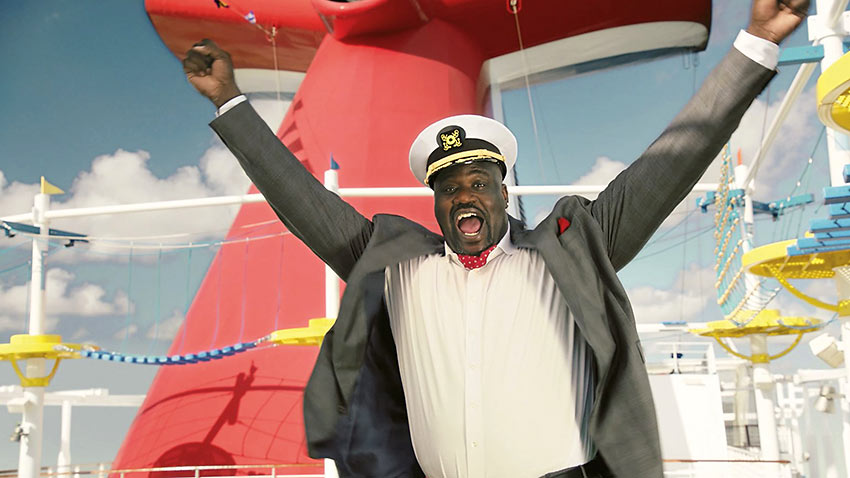
Former basketball star Shaquille O’Neal is now Carnival’s newly-named Chief Fun Officer. Yes, Shaquille O’Neal. Of course it makes sense for he embodies the kind of people Carnival wants on its ships: social, happy and a tad goofy around the edges.
The hulking 7-foot-1 O’Neal will appear in a 30-second video tour of the Carnival Vista in his first assignment as CFO (chief fun officer).
Shaq will show his playful side during the tour, sporting a Love Boat-style captain’s hat and visiting the SkyRide, Havana pool and the Cloud 9 Spa, among other Vista attractions.
On the ship’s basketball court, Shaq stuffs an attempted layup by a co-worker. At Guy Fieri’s Burger Joint, he tries to swipe a burger from an inattentive companion.
“We are very excited to have Shaq as part of the Carnival team!” said Carnival Cruise Line president Christine Duffy. “He will serve as a great ambassador ensuring everyone knows all about our one-of-a-kind brand of fun.”
Since retiring from the National Basketball Association in 2011, O’Neal’s principal role has been as a commentator on the TNT channel’s basketball coverage. In the past, he has done TV commercials for Buick, Pepsi, Reebok, IcyHot and other products.
O’Neal played for six teams over a 19-year career and was part of four championship teams, including one for the Miami Heat in 2006. The Heat’s principal owner is Carnival Corp. chairman Micky Arison.
Carnival said O’Neal’s role at the brand will be to lend his “fun, larger-than-life personality and playful spirit” to inspire travelers to “Choose Fun” when planning their next vacation and in their everyday lives.
An Analysis of It Sifts from Leaden Sieves
“It Sifts from Leaden Sieves” is a wonderful Emily Dickinson poem; it is also a beautiful winter poem. In a few lines, Dickinson captures the movement of the snow and the way it settles upon the winter landscape, rendering the road, the railings of the fence, and the lampposts different and strange.
This poem describes the snow that falls (or ‘sifts’) from the dark grey clouds in the sky (‘leaden sieves’). ‘Sifts’ is a nice use of what is normally a transitive verb as an intransitive verb (you sift something, e.g. flour; things don’t sift); it also chimes with ‘sieves’, immediately evoking the metaphor of flour being sifted through a sieve. The metaphors continue: the snow is ‘alabaster wool’ and like ‘fleeces’, a ‘crystal veil’ coating the roads and the fences, eradicating our former memories of the landscape before it was coated in a covering of snow.
The poem is a beautiful description of the way snow obscures familiar objects, rendering them strange and ghostly to us. Who but Emily Dickinson would have thought to describe snow as ‘alabaster wool’? But the most remarkable thing about the poem is that it never mentions snow by name. It doesn’t have to. ‘It sifts from leaden sieves’ (like ‘It rains’, that common idiom where the precise meaning of ‘it’ is hard to define) captures the spectral beauty of snow much more effectively.
“Games of Thrones”-Themed Ice Hotel Opens in Finland

A “Game of Thrones”-themed ice hotel complete with a bar and a chapel for weddings has opened in northern Finland in a joint effort by a local hotel chain and the U.S. producers of the hit TV series.
Lapland Hotels said Friday they chose “Game of Thrones” to be the theme for this season’s Snow Village, an annual ice-and-snow construction project covering 20,000 square meters (24,000 sq. yards) in Kittila, 150 kilometers (93 miles) above the Arctic Circle.
Snow Village operations manager Janne Pasma told Finnish national broadcaster YLE that he was a huge fan of the series and it was “a dream come true” that HBO Nordic agreed to go along.
The hotel, which stays open until April, suggests that guests stay only one night due to below-zero temperatures.
Here’s How Being in Power Messes With Your Brain, According to Science
From the bully on the playground to the big-wig in the corner office, power dynamics are everywhere in our lives.
Courtesy Hilary Brueck, BUSINESS INSIDER
A flood of allegations that powerful men in media, politics, and tech have been abusing their positions of power and preying on those below them have surfaced in recent months. High-profile figures including Harvey Weinstein, President Donald Trump, Kevin Spacey, Matt Lauer, Roy Moore and, Senator Al Franken and have been accused of various kinds of unwanted advances, including exposing themselves to co-workers and employees, groping, and rape. People are starting to wonder: Is there something about the rush of being in power that leads people to commit these despicable actions?
Science suggests that there are unusual things happening in the brains of power-holders. Decades of study have shown that the psychology and physiology of powerful people are notably different from those of average people – down to the architecture of the brain’s prefrontal cortex, and the way the heart pumps blood.
Here’s what feeling powerful does to your body and your brain, according to science.
Being powerful can dampen your ability to empathise with others.
Dacher Keltner, a psychology professor at UC Berkeley, has been studying the way powerful brains work for decades. He even lent his expertise about emotions to Pixar’s “Inside Out”.
Keltner’s research has shown that being powerful can disengage your prefrontal cortex – the part of the brain that helps you understand how others are feeling.
“Power makes it harder to empathise with other people, at the level of the brain,” Keltner told Business Insider.
Powerful people are less able to mirror people they observe or interact with.
Powerful people’s “mirroring” systems are not as strong as those of others. That means they’re less likely to mimic a person they’re having a conversation with, and they will do less laughing or shrugging along with their companion.
A 2014 study looked at brains of “high-power” people and revealed that when observing others squeeze a ball, they had less resonance in certain brain areas that should typically light up, suggesting their brains had become less empathetic and able to ‘mirror’ others. The more power someone had, the less resonant they were.
Leaders can find it tough to muster up compassion.
The vagus nerve, which runs from the top of the spinal cord down to the abdomen, has been shown to promote compassion, gratitude and appreciation.
But Keltner’s work has shown that this nerve bundle gets “de-activated” in powerful people. He says that could partially explain why “it’s harder to know how people feel when you’re feeling powerful.”
Some research has shown that being powerful makes people more likely to break the rules, and less likely to share.
A 2011 study showed that people driving high-end cars were four times more likely to cut off other drivers, and three times more likely to cut off a pedestrian about to cross the street. (Some say this could just be a sign that the rich and powerful are more willing to take risks.)
The same researchers also observed how people acted when told that a bin of candy nearby was going to be given to kids. Upper-class people were more likely to be greedy and take extra candy from the bin.
Counterintuitively, greater income inequality leads powerful people to be less generous.
Income inequality can make powerful people less generous and foster a sense of entitlement.
A study of over 2,000 Americans revealed that high-income people in more unequal states were less generous. High-income people living in conditions of low inequality, however, showed about the same level of generosity as lower-income people.
That suggests rich people may not necessarily be inherently less generous, but they are likely to be less charitable if income distribution is more unfair.
Power can help buffer against stress.
For years, researchers have hypothesised that powerful people have a kind of built-in “stress buffer”: they consistently demonstrate lower levels of the stress hormone cortisol, and higher testosterone, which helps reduce fear.
This holds true across genders (though women have about one-sixth the amount of testosterone that men do).
This isn’t just the case once people have attained power – having lower levels of cortisol and higher levels of testosterone can also predict whether someone rises into a position of leadership.
Pranjal Mehta, who studies hormones and power at University College London, told Business Insider that these common traits wind up propagating inequality.
For example, a job candidate who comes from a wealthy or privileged background already has more sources of power, so they may walk into an interview with extra “psychological resources” that buffer them from stress.
Mehta explained that such a candidate might “appear more competent, regardless of their actual abilities.”
The effects of power extend from the brain into the body.
Powerful people such as police officers have been shown to process blood in the heart faster and deliver that fresh, oxygenated blood to the brain quicker, according to research from Wendy Mendez, who studies how power impacts the body at the University of California San Francisco.
In this way, powerful people can stay healthier and are less likely to develop deadly diseases.
Powerful people who make more money live longer, healthier, less stressful lives.
The richest Americans can expect to live more than six years longer than people living below the poverty line, because they have access to things like healthier food, better health care, and relatively pollution-free neighbourhoods.
That’s true for anyone making an income more than four times the federal poverty level. (That’s a family of four living on over US$98,400 a year, or a single person making more than US$48,240.)
A 2011 study showed that people making more than US$100,000 a year also report lower levels of sadness, hopelessness, and worthlessness than their lower-income counterparts.
But the effects aren’t just about money: Research has shown that a person’s perception of their own socioeconomic status and where they fit in the social hierarchy also impacts their health.
Data from the World Bank suggests that countries with higher income inequality have lower life expectancy rates at all income levels. Researchers say the wealth inequality leads to less “social cohesion” – and more fear and stress for everyone.
We may be primed to give strong-looking men more power.
Research from 2016 showed that men who are perceived as more “physically formidable” tend to be perceived as having greater leadership abilities.
But the effect isn’t universal. Strong men who were seen as “aggressively self-interested” were not seen as any more worthy of leadership status.
Those who appear to be power-dressers can even have an effect on the heartbeats of the people around them.
A 2014 study by Wendy Mendez pitted power-dressers against those who looked more casual – some men wore black dress suits from Macy’s, while others wore white t-shirts and plastic sandals from Walgreens.
Mendez found that “high-class” dressers had an impact on their counterparts’ hearts: When the heartbeats of the men in suits started racing, their partners’ did too. When the power-dressers heart rates slowed, the pulses of the sandal-wearers mirrored that as well.
But power doesn’t always help your health.
When a person who’s in power thinks they might lose their status, their cortisol levels can skyrocket. Mehta said this might play out in an election year.
“People in positions of power, their stress levels might be increasing,” he said.
On the flip side, in power voids or times of uncertainty about leadership, people of lower status can feel like they have got a fairer shot at making it big.
There are some antidotes to power’s corrupting influence, however.
Not all studies about power are bad news. Research has shown that people who focus on the needs of others and work to improve social welfare are better at understanding peoples’ needs and desires, and improve their ability to manage and cooperate with colleagues.
When people feel a heightened sense of social responsibility in connection with their position of power, they’re more in tune with the needs and views of others.
It’s important for people in power to remember their roots …
Pepsi CEO Indra Nooyi loves to tell the story of the day she became president of the board, and her mother sent her out to fetch milk.
She returned in a huff. Here’s how she told the story to The Atlantic:
I banged [the milk] on the counter and I said, ‘I had great news for you. I’ve just been told that I’m going to be president on the Board of Directors. And all that you want me to do is go out and get the milk, what kind of a mum are you?’ And she said to me, ‘let me explain something to you. You might be president of PepsiCo.
You might be on the board of directors. But when you enter this house, you’re the wife, you’re the daughter, you’re the daughter-in-law, you’re the mother. You’re all of that. Nobody else can take that place. So leave that damned crown in the garage. And don’t bring it into the house.’
Social scientists say that ability to remember one’s roots – the background and people that helped a person make it to the top – is an exercise in gratitude that can keep powerful people in touch with others.
… And keep listening
Leaders who remember that their power is only as good as the respect others have for them also have an easier time staying grounded.
Keltner said that in order to keep his own power in check, he channels his inner Abraham Lincoln, who was known for actively listening to everyone who spoke with him.
“That really is a quality of great leaders,” Keltner said. “They stay fascinated by and devoted to other people.”
History of Auld Lang Syne
Auld Lang Syne has become an anthem sung the world over at New Year.

In 1788 the Robert Burns sent the poem ‘Auld Lang Syne’ to the Scots Musical Museum, indicating that it was an ancient song but that he’d been the first to record it on paper. The phrase ‘auld lang syne’ roughly translates as ‘for old times’ sake’, and the song is all about preserving old friendships and looking back over the events of the year.
It is sung all over the world, evoking a sense of belonging and fellowship, tinged with nostalgia.
It has long been a much-loved Scottish tradition to sing the song just before midnight. Everyone stands in a circle holding hands, then at the beginning of the final verse (‘And there’s a hand my trusty friend’) they cross their arms across their bodies so that their left hand is holding the hand of the person on their right, and their right hand holds that of the person on their left. When the song ends, everyone rushes to the middle, still holding hands, and probably giggling.



